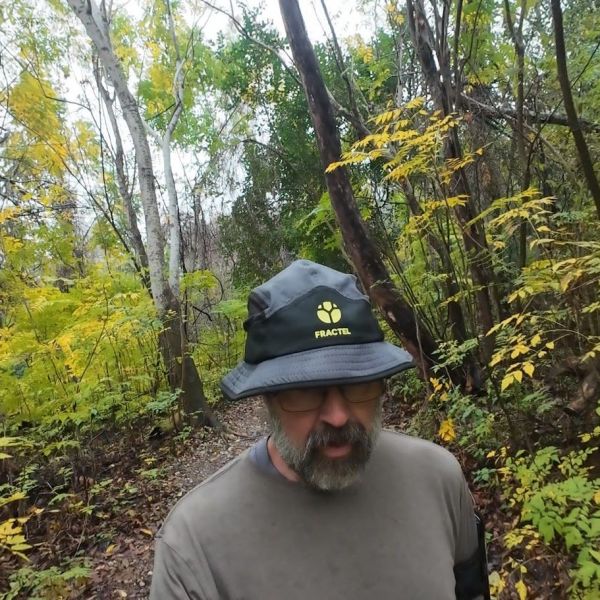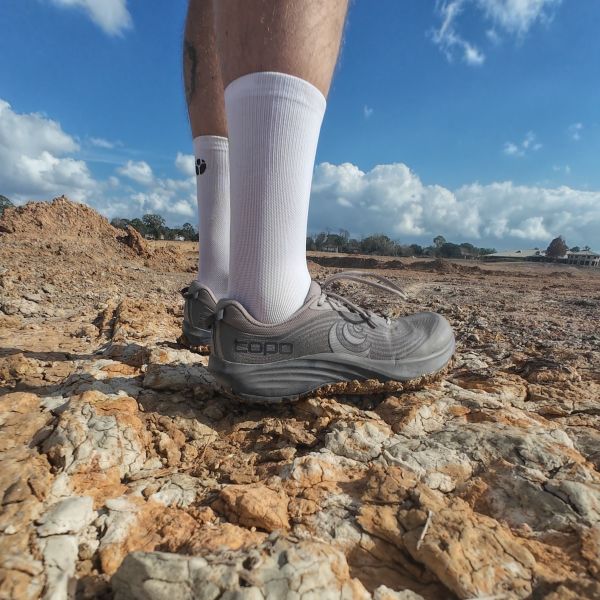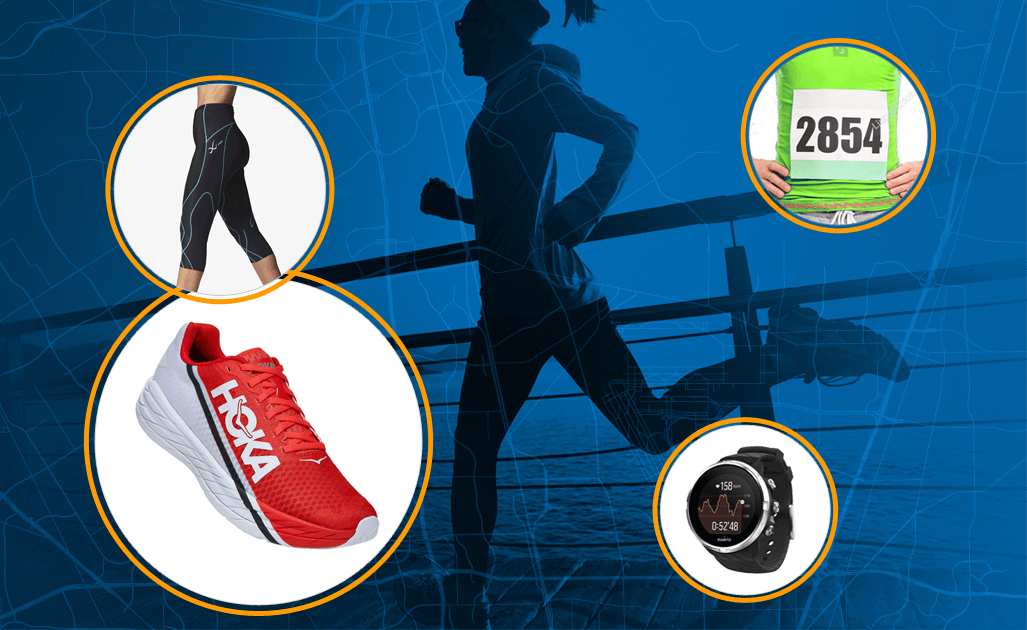Have you seen the documentary? Kipchoge: The Last Milestone.
It’s about marathon runner Eliud Kipchoge’s attempt to run a 26.2-mile marathon in under two hours.
Is that even humanly possible? It hasn’t been done yet in any official marathon.
If you’ve ever chased a PR, you’ve probably looked at all the little variables you can control to get to the finish line faster…
In this documentary, Kipchoge takes on the “1:59 Challenge” funded by INOES and Nike support.
We won’t give away the details.
It’s worth watching (along with these 9 other running movies), but it’s controversial to say the least.
Chances are pretty good you’ll have to debate: True Talent or Deep-Pocket Advantage?
In Kipchoge, you’ll get a peek into the training, mindset, and racing strategies to attempt the impossible.
You’ll also learn 7 lessons from Kipchoge to help you run your own race, be it a 5K, 26.2-mile marathon, or beyond.
Kipchoge grew up in Kenya, where some of the most decorated sprinters and runners have emerged over the last 20-plus years.
He was just 18 when Keynan marathoner Paul Tergat broke the world record in 2003 (2:04:55 at the Berlin Marathon).
He knew then, that if he wanted to become a great runner, it would take patience, practice, and even failure.
Tip: Thinking about running a marathon? If you can run a 10K, you can probably train for a marathon in 12 to 16 weeks.
If a 10K is out of reach right now, it might take you a little longer, but you can do it. Don’t give up.
Marathon World Records 2003-Current
Right now, Kipchoge is the world’s fastest marathon runner. But he’s quick to recognize he didn’t get there on his own.
He’s learned from legends like Tergat. And he’s ran alongside Keyan marathoners (who each set world records) like:
Tip: Want to become a better runner? Find a role model. It might be someone you know, or a pro like Kipchoge.
Pay attention to the way they train, eat, and think. Model that, and use their success as a source of motivation to keep going.
Kipchoge started working with running coach Patrick Sang in 2001. He’s helped build Kipchoge’s skills as a runner for nearly two decades with practice, training runs, and strength and conditioning routines.
In the 1:59 Challenge, Sang was a driving force behind Kipchoge’s training, which included identifying and developing every possible advantage to help him try and prove it’s possible to run a marathon in under two hours.
Tip: Thinking about hiring a coach? Before you jump in, make sure you’re a good fit. Once you find a coach you like, follow the plan, do the work, and get feedback to keep improving.
There’s some controversy surrounding Kipchoge and the 1:59 Challenge. One of those happens to be the shoe he wore to go the distance.
It’s a highly-cushioned running shoe with carbon-fiber plates that’s designed to improve running economy by 4 percent or more, according to Nike. It’s even been banned in competition by some sports organizations.
Tip: Whether you try the VaporFly or not isn’t important.
But the right running shoes can help you run more efficiently, recover faster, and keep your feet happy longer. It’s worth a trip to a local running store to get fitted and try out shoes and gear for your next run or race.
During the 1:59 Challenge, Kipchoge was surrounded by a team of runners, coaches, scientists, and engineers to create every advantage possible to help him run a sub-2-hour marathon.
This included a team of nutritionists.
Tip: Fueling during a 26.2-mile marathon is critical. You can’t run that far on an empty tank. If you’re aiming to finish strong or set a PR, getting your fuel right is just as important as months of training.
Not sure where to start? Practice fueling during your next long run. For example:
Despite the controversy surrounding Kipchoge and the 1:59 Challenge, there is an optimistic message that emerges in this documentary.
Even after winning dozens of marathons, setting a world record, and winning Olympic medals, Kipchoge knows success starts by making a decision to do whatever it takes to be your very best, even if that means learning from failure.
For Kipchoge, the takeaway from this documentary about the 1:59 challenge really isn’t the outcome. It’s an opportunity to inspire greatness. A reminder to every runner out there to keep going.
“No human is limited.”
In the 1:59 Challenge, Kipchoge's extensive team of pacers, coaches, engineers, scientists, and staff controlled every possible variable to create the perfect racing conditions. Watch the documentary to find out what happens.
Tip: You're probably not going to shut down an entire city and hire an entourage to help you set a PR. But let this documentary serve as a reminder that shopping around for the perfect race (course profile, time of year, aid station support, etc.), may be just the thing to help you finish your first marathon, qualify for Boston, or get from where you are to where you want to be.
Ok, so maybe 4:33 average mile pace for 26.2 miles isn’t in your future. That’s Kipchoge’s pace churning through the miles. But you can still run like him...with heart, confidence, sharing your love for running to inspire others. Keep going.

Login to your account to leave a comment.





We Want to Give it to You!
